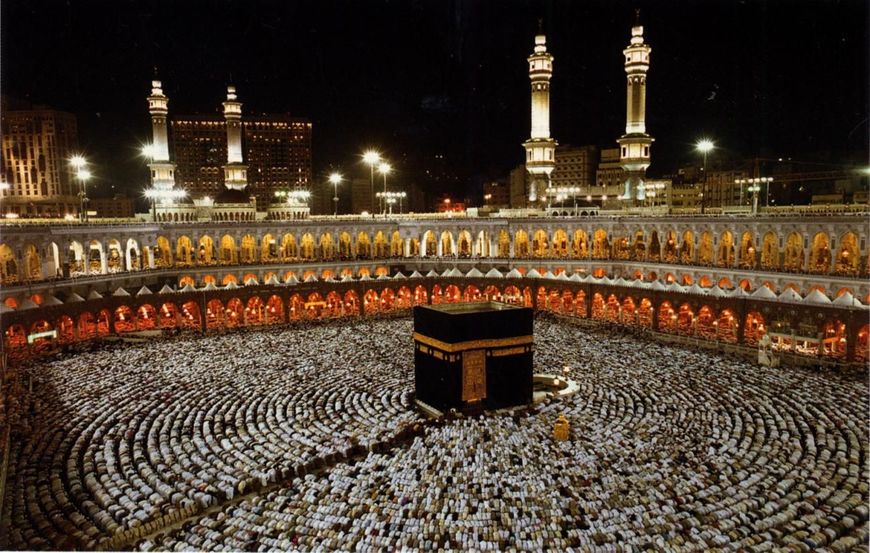The KU Community
Hajj: The Sacred Pilgrimage in Islam
Hajj, the sacred pilgrimage to Mecca, holds profound importance in Islam as one of the Five Pillars that define a Muslim’s faith and practice. Every year, millions of Muslims from around the world gather in Saudi Arabia to fulfill this religious obligation. Undertaking Hajj is both a spiritual journey and a deeply transformative experience, bringing Muslims closer to Allah and connecting them to a timeless tradition that dates back centuries.
What is Hajj?
Hajj is a pilgrimage that every adult Muslim who is physically and financially able is required to perform at least once in their lifetime. It is observed annually during Dhu al-Hijjah, the last month of the Islamic lunar calendar. This pilgrimage is not only an act of worship but a unique journey of self-discovery and renewal of faith.
The Historical Significance of Hajj
Hajj has deep historical roots that trace back to the Prophet Ibrahim (Abraham) and his family. According to Islamic tradition, Allah commanded Ibrahim to build the Kaaba, the cubed structure at the center of Mecca that Muslims face during prayer. Hajj rituals commemorate the trials and sacrifices of Ibrahim, his wife Hajar, and their son Isma’il (Ishmael), who all demonstrated unwavering faith in Allah.
The Spiritual Benefits of Hajj
-
Renewal of Faith
For many Muslims, Hajj represents a chance to reconnect with their faith on a deep, personal level. The pilgrimage is a time for reflection, prayer, and repentance, allowing individuals to seek Allah’s forgiveness and guidance. -
Equality and Brotherhood
During Hajj, all pilgrims dress in simple white garments, known as Ihram, symbolizing purity, humility, and unity. This act of dressing alike removes social differences, reminding all pilgrims that they are equal in the eyes of Allah. -
Self-Reflection and Sacrifice
The physical and spiritual challenges of Hajj require patience, endurance, and sacrifice. Pilgrims are reminded of the virtues of humility and selflessness, mirroring the sacrifices made by Ibrahim and his family. -
A Cleansing of Sins
Hajj is often described as a journey that cleanses a believer of past sins, leaving them with a fresh start. Completing Hajj with sincerity is believed to grant spiritual rewards and blessings.
The Key Rituals of Hajj
The pilgrimage involves a series of rituals that hold deep symbolic meaning. These include:
-
Tawaf: Pilgrims circumambulate the Kaaba seven times in a counterclockwise direction, signifying their devotion to Allah as the center of their lives.
-
Sa’i: This ritual involves walking seven times between the hills of Safa and Marwah, re-enacting Hajar’s search for water for her son Isma’il. It represents perseverance and trust in Allah’s provision.
-
Day of Arafat: Pilgrims spend the day praying and reflecting on the plains of Arafat. This is considered the climax of Hajj, as it’s a day of intense supplication and spiritual cleansing.
-
Muzdalifah: After sunset on the Day of Arafat, pilgrims travel to Muzdalifah to gather pebbles for the ritual stoning of the devil, symbolizing the rejection of evil.
-
Stoning of the Devil (Ramy al-Jamarat): Pilgrims throw pebbles at three pillars, signifying the rejection of temptation and evil, as Ibrahim resisted the devil’s temptations.
-
Sacrifice (Qurbani): Pilgrims perform an animal sacrifice to honor Ibrahim’s willingness to sacrifice his son in obedience to Allah. This act also signifies generosity and compassion, as a portion of the meat is distributed to the needy.
The Global Significance of Hajj
Hajj is a reminder of the unity of the global Muslim community, as people from diverse cultures and backgrounds come together in worship. The pilgrimage strengthens bonds within the global Ummah (Muslim community) and fosters a sense of shared identity and purpose.
Returning from Hajj: A New Beginning
After completing Hajj, pilgrims are often regarded with a special honor, and many experience a profound transformation in their spiritual lives. They return home with a renewed sense of faith, a cleansed spirit, and a commitment to live righteously. This renewed sense of purpose encourages pilgrims to lead by example in their communities, embodying the values of kindness, compassion, and humility.
For those who seek to understand the significance of Hajj and wish to learn more about its rituals and spiritual depth, visit this comprehensive guide. Embrace the journey of Hajj, the profound act of worship that holds a special place in the hearts of Muslims worldwide.



